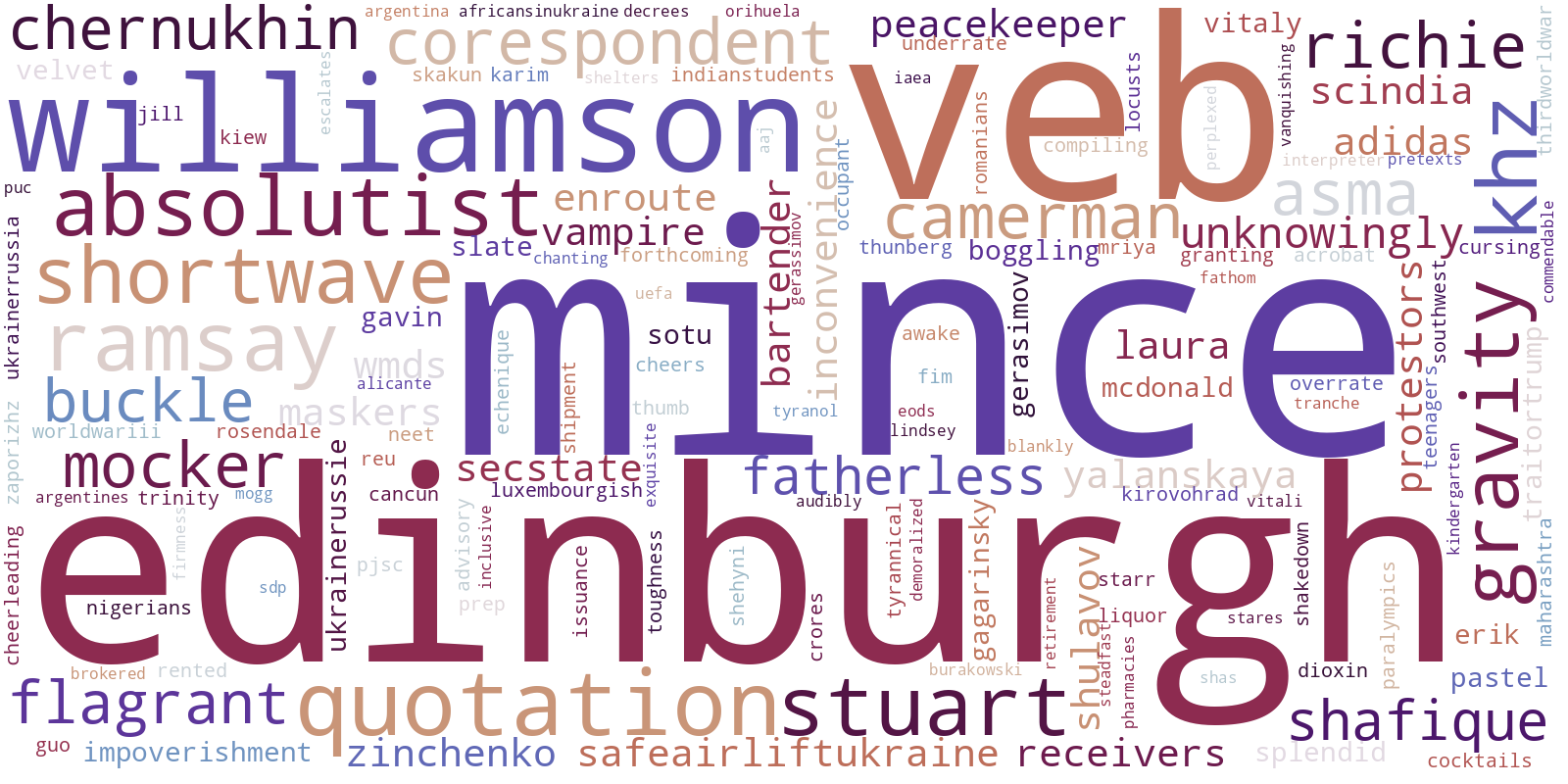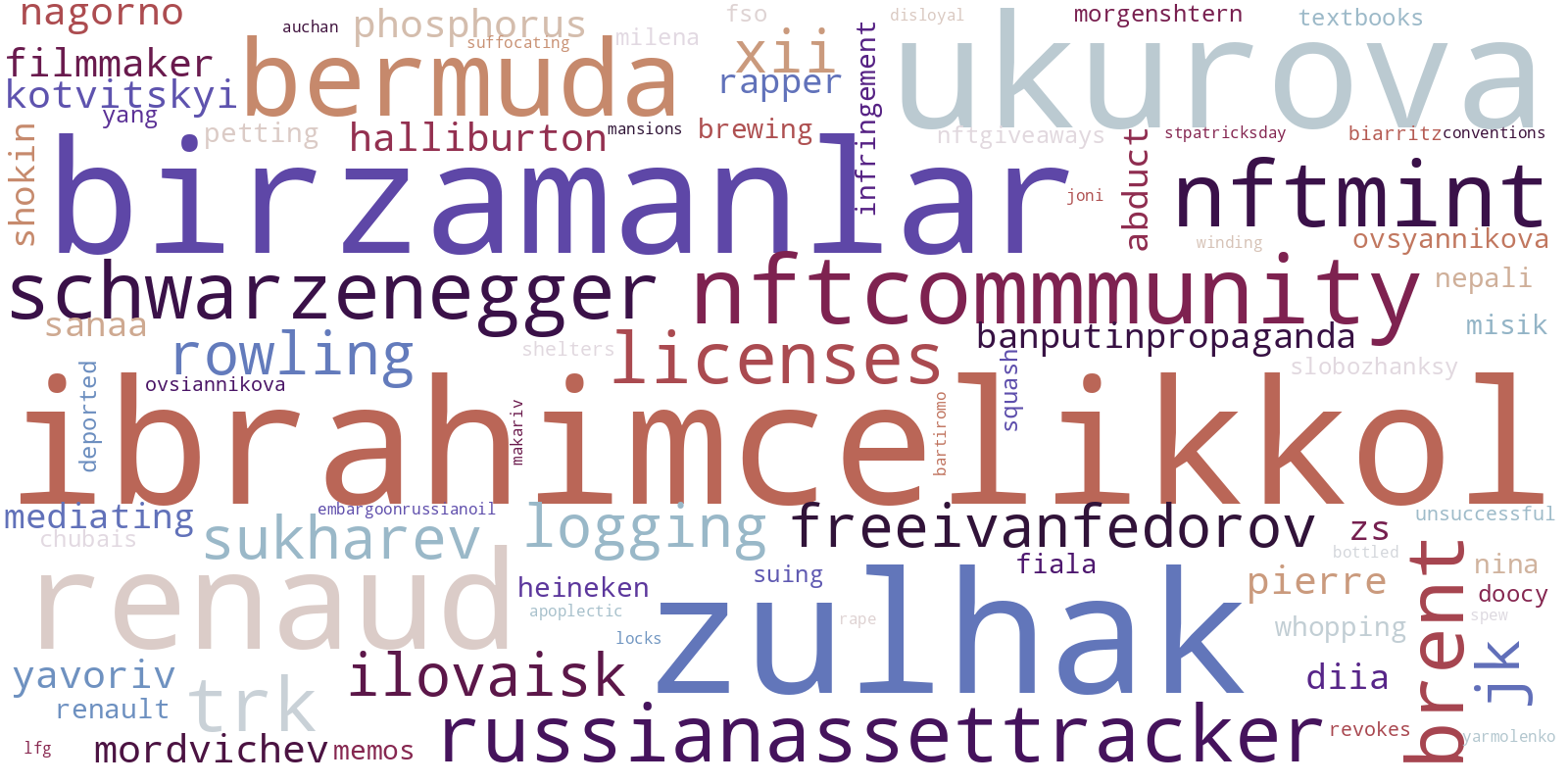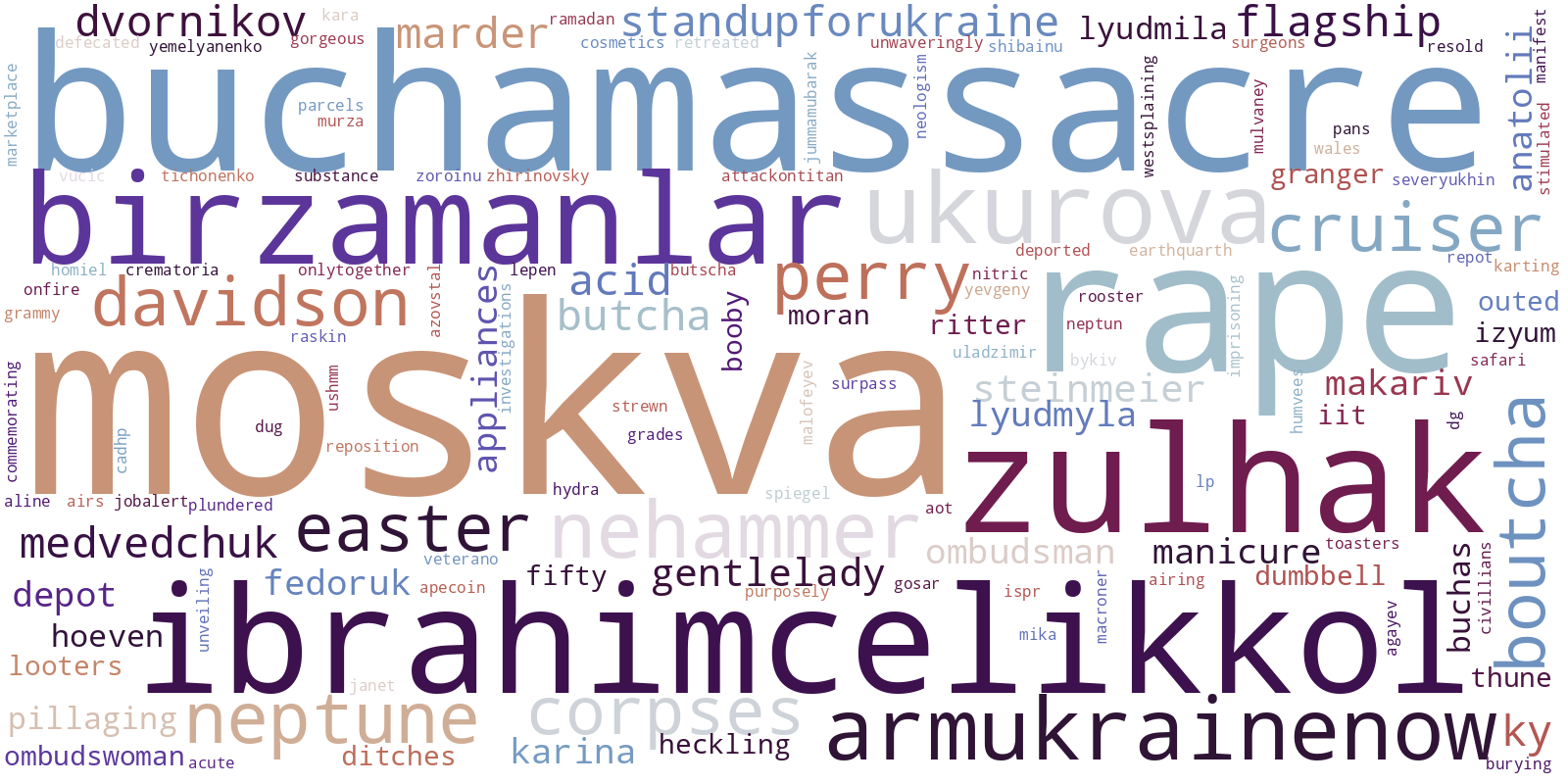The most relevant words depends on the period in time
Take a look at the wordclouds filtered on time in this section to see the most relevant words regarding the war in the given time period on Twitter. The wordclouds are generated based on TF-IDF scores in order to highlight, not simply the most frequent used words, but the most relevant words for the specific period of time.
Explore the prominent words yourself or take a look at our analysis below.
Looking at the wordclouds based on highest TF-IDF scores for different time periods, we hoped to see a change of discourse and/or subject as time proceeded. Looking at the first period of the war from the Russian Invasion of Ukraine until March 10th, we see that some of the most prominent words are "williamson", "edinburgh" and "absolutist". The first refer to Hugh Williamson, the Europe and Central Asia director at Human Rights Watch, who in the first days of the war expressed deep concerns towards Russia's act of war crimes. The term "edinburgh" may be rated as relevant, as Ukranians joined in huge demonstrations in Scotland against the attacks on their homelands during the first days of the war. "absolutist" can refer to different specific cases as well as the meaning of the term in general. One case which was trending on March 7th was when Elon Musk refused to block Russian news sources on Starlink which resulted in many people accusing him of being a "free speech absolutist".
Turning our attention towards the second wordcloud for the period from March 11th until March 29th, the most highlighted words include "birzamanlar", "ibrahimcelikkol", "zulhak", "nftcommunity", "russianassettracker" (probably a hashtag) and "schwarzenegger". When investigating these words, we found that some words seemed more related to the war than others. For example "birzamanlar" and "ibrahimcelikkol" is a Turkish expression and actor, respectively, which do not have any obvious connection to the war. On the other hand the expression "russian-asset-tracker" is the name of a global investigation into assets held outside Russia linked to individuals sanctioned for supporting the government of Russia, and this investigation was kicked off on April 8th 2022. Furthermore Arnold "Schwarznegger" held a speech on March 18th, where he publicly asked Putin to stop the war.
In the last wordcloud for March 30th to April 15th, it is very prominent that the focus of many tweets regarding the war is the rapid increase in war crimes performed by Russia. Words like "burcha-massacre", "rape" and "acid" is in focus which most likely refers to killings and rapes in Bucha during the weeks of April and the public suspense of whether Russia has introduced chemical weapons in Ukraine.



